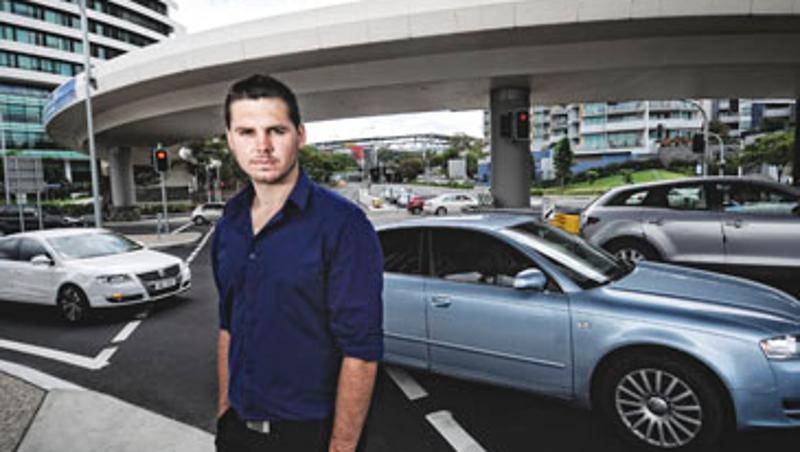
If Brisbane motorists were charged for using CBD roads and given subsidised access to bypass roads, such as the Clem7 and Northern Link, it would reduce inner city congestion, emissions and commuter travel time, says Queensland University of Technology (QUT) engineering student Jake Whitehead.
Mr Whitehead has just received the Rod McGee Medal for his research into congestion charging schemes - or the charging of motorists to use CBD roads - and how it could be applied to Brisbane to ease traffic flow in the city.
He spent last year in Sweden, studying on exchange at the Royal Institute of Technology in Stockholm. He investigated various road-tolling schemes in Europe and found it was now standard practice to use such schemes in order to discourage road use.
"Quite a few of the European government officials I met think Australia has taken the wrong approach to road pricing," Mr Whitehead said.
"Our logic is wrong because we charge people to travel on the new roads or bypasses that we want them to use, while drivers travel for free on congested inner-city routes.
"Instead, we should be looking at charging on these congested routes and using that revenue to fund or subsidise public transport and roads. My research indicates that these measures would significantly reduce traffic in congested areas and in the wider Brisbane transport network."
Mr Whitehead said Brisbane had a greater population than Stockholm and so could gain greater benefit from a congestion charge. His thesis proposed a two-stage congestion charge for Brisbane: the first implemented between 2011 and 2016 and the second in 2026.
The second stage would be dependent on vital infrastructure that would form a ring road around Brisbane funded by the revenue from stage one.
"The first stage of my scheme could be implemented immediately," he said.
"It would involve charging motorists entering a city cordon which would border the Riverside Expressway CBD off-ramps and Story Bridge, extend through New Farm to Breakfast Creek and border the inner-city bypass to the north-west.
"My model for Brisbane has a charge of $5 for private vehicles and $7.50 for commercial vehicles. This charge would apply only on entry into this cordon on weekdays between 6.30am and 6.30pm.
"This means there would be no charge if you drove to work at 6am or returned after 6.30pm. The charge would apply to residents of these areas, and could be applied using the same systems currently used on Brisbane's toll roads.
"Inner city residents could use public transport, walking, bicycles or bicycle taxis. They would ultimately benefit from reduced traffic and increased parking availability."
Mr Whitehead said Stockholm's congestion charge had not only reduced traffic entering the city by up to 22 per cent, it had also reduced carbon emissions by 13 per cent in the inner city, and 2.7 per cent in greater Stockholm, which has a population of just under one million.
"A drop of between 10 to 30 cases of respiratory disease per year from the reduction in particles was also found," Mr Whitehead said.
"Other benefits included increased public transport patronage, fewer crashes and pedestrian incidents and the spreading of office hours."
Mr Whitehead said he hoped his research would stimulate constructive debate about the suitability of a congestion-charging scheme for Brisbane.
"My research suggests that Brisbane residents would prefer such a scheme over higher parking costs and road tolls," he said.
The Rod McGee Medal is an Engineers Australia annual award for a final-year engineering student. It carries a $2000 prize. Mr Whitehead was also awarded the RACQ-QUT scholarship for his proposal to study congestion charging schemes. RACQ has long been critical of toll roads and was interested in supporting research that builds a better understanding of the economic, social and environmental impacts of different road charging options.
Media contact: Niki Widdowson, QUT media officer, 07 3138 1841 or n.widdowson@qut.edu.au
** High res photos of Mr Whitehead available for media use.


